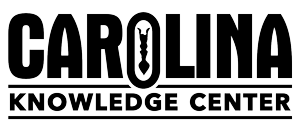Teachers and students continue to face unprecedented challenges due to the coronavirus pandemic. This situation has impacted AP® students, teachers, and courses. Given the tumultuous nature of the past two school years, students need more help and practice now than ever before. As you focus on the science content, do not overlook the importance of improving and honing students’ writing skills. Proper writing skills are essential for success on the AP® exams.
Carolina offers resources that can help your students prepare for the written exam.
Writing Prompts
Different types of questions require different types of answers. In “Writing for Assessments,” we examine different types of writing prompts and provide examples and practice questions.
Basic Writing Tips
Applicable to all science students, these tips offer strategies on how to answer a question effectively. The tips are synthesized from several sources and delineate the skills necessary to communicate scientific information effectively.
- Plan. Take a minute to plan what you need to communicate to answer a question fully.
- Use the margins of your test book for planning.
- Clarity. Avoid jargon, acronyms, and abbreviations.
- Don’t leave your answer open to multiple interpretations.
- Brevity. Use words efficiently.
- Don’t use two words when one will do.
- Get down to the essential message you want the grader to score.
- Place the most important information first.
- Combine overlapping sentences.
- Simplicity. Balance detail with clarity.
- Put facts and data in context.
- Keep the language simple.
- Avoid abstract nouns and choose words with clear meanings.
- Order the words in your sentences carefully.
- Accuracy. Check your facts and data.
- Be sure your numbers and decimal points are legible.
- Every number requires a unit.
- Language. Avoid using “it” and “this.”
- Use strong language.
- The active voice is straightforward and stronger than the passive voice.
- Avoid excess words.
- Review. Take a minute to read your answer to yourself—make sure the answer is complete and logical.
- Exam readers score only your written words, not your intentions or an interpretation.
“The fundamental purpose of scientific discourse is not the mere presentation of information and thought but rather its actual communication. It does not matter how pleased an author might be to have converted all the right data into sentences and paragraphs; it matters only whether a large majority of the reading audience accurately perceives what the author had in mind.”
George Gopen and Judith Swan, “The Science of Scientific Writing”
Writing resources
- Duke University Graduate School Scientific Writing Resource
- MIT Writing and Communication Center
- “It’s not just you: science papers are getting harder to read,” Nature (2017)
- The Science of Scientific Writing
- The Society for Technical Communication
- Style for Students Online: Effective Technical Writing in the Information Age
- Technical Writing: 129 Deadwood Phrases that Kill Good Writing
Technical writing practice
- Use the tips above to edit the health report excerpt above. Use full sentences and proper punctuation. Make sure the report stays accurate.
- Get down to the essentials! Use your edited report to create a tweet that correctly disseminates all of the pertinent facts, is easily read, and will not be misinterpreted.
- It’s time to look at your writing.
- Review the resources and guides provided.
- Select a full page of a formal paper, essay, or lab report that has already been graded.
- Using the writing resources listed, rewrite the page.
- Select a peer review partner and exchange the original page and edited page for a second review.
- Review your partner’s work and make additional edits based on the writing guidelines.
- Share the results with your partner.
Related articles
- AP® Free-Response Questions: Dos and Don’ts
- AP® Biology: Technical and Scientific Writing
- AP® Chemistry: Technical and Scientific Writing
- AP® Environmental Science: Technical and Scientific Writing
AP® is a trademark registered and/or owned by the College Board®, which was not involved in the production of, and does not endorse, these products.





